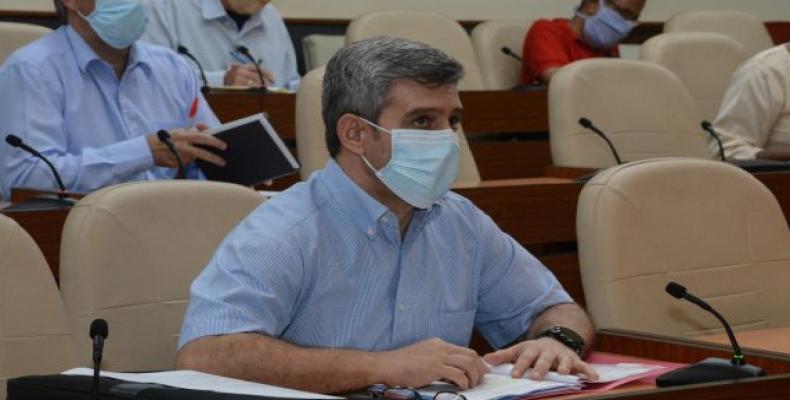Havana, May 21 (RHC)-- How can we ensure that the process of computerization of Cuban society contributes to the economic and social development of the nation, to the quality of life of our people? How can we make it a working tool that can be used in the daily life of the country and demonstrate the relevance of its use in the most diverse scenarios? These are some of the challenges that the Ministry of Communications has to face in order to promote the advancement of information and communication technologies in Cuba.
In the midst of these challenges, e-commerce and e-government play a key role, two issues to which the country's leadership has given special impetus for several years now and which were once again the subject of analysis at the review meeting of this program led by the President of the Republic, Miguel Díaz-Canel on Wednesday.
However, that is not the only principle underpinning the development projections that MINCOM has set out to enhance by 2020 with regard to that activity.
The head of the sector, Jorge Luis Perdomo Di-Lella, explained that, among other aspects, said projections contemplate consolidating, perfecting and extending electronic payments, both among legal entities and between them and individuals; introducing electronic payments to the central account of the State Budget, including tax obligations, both of legal entities and individuals; establishing the validity in electronic formats of the documents that support the activity of electronic commerce, including contracts and invoices; and initiating electronic commerce in the wholesale companies with the highest sales volume in the country.
After recognizing how much progress still needs to be made in this regard, Perdomo Di-Lella commented on the benefits that the National Payment Network (PASARED) has brought since 2018, when the first virtual stores were opened to the population and the Transfermóvil application began to be used massively as a means of electronic payment from mobile devices. Later, in 2019, he said, the EnZona application also began to be used, which is currently free of charge when used as a means of payment.
In particular, regarding Transfermóvil, he said that more than 680,000 users are registered there and more than 11 million transactions are carried out every month. Through this platform, it is possible to pay for public services such as electricity, telephone and manufactured gas; bank transfers between users; consultation of banking operations; as well as sending money through money orders.
Reflecting on the benefits that electronic payments bring to the State Budget, Finance and Prices Minister Meisi Bolaños Weiss said that it will have a very favorable impact. She said that the Ministry has designed proposals so that taxpayers can also pay their taxes by this means.
The Minister of Domestic Trade, Betsy Díaz Velázquez, considered that the plan of actions that has been defined allows to lay the foundations for the present and future development of e-commerce in the country. Specifically about virtual stores for the population and their increase in the midst of the current situation that COVID-19 has imposed on Cuba, she said that some of the problems presented have not yet been fully solved.
She noted that several companies in the country - not only those engaged in retail trade - are currently engaged in e-commerce, many of them with very good results.
Regarding this strategic issue, the President of the Republic, Miguel Díaz-Canel, said that "e-commerce is here to stay." Life has shown us -he said- that we have to go into e-commerce immediately; if we had made more progress, it would have been possible to better face the scenario imposed on us by COVID-19.
The Cuban president insisted that in order to achieve the objectives that the country has set for itself in terms of e-commerce, it is essential to have the infrastructure to support it. In this regard, he said, the search for national solutions based on the development of the electronic industry plays a fundamental role, which would not only increase employment capacities, but would also give us technological sovereignty in several products.
In this regard, he highlighted the development potential of the thousands of engineers in electronics, telecommunications, automatic control, information technology and other careers that have been trained in Cuban universities.


